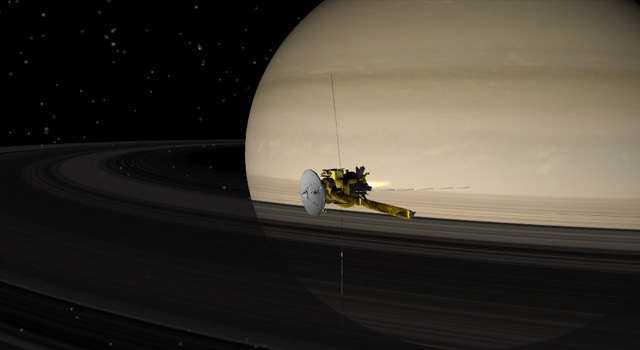Callisto and Jupiter’s three other largest moons were discovered in 1610 by Italian scientist Galileo Galilei.
Almost 400 years later , a spacecraft bearing his name—the Galileo orbiter—began the first in depth study of the Jovian system, including Callisto and its sister moons. Galileo orbited Jupiter until the mission ended in 2003.
Since then, several NASA spacecraft, including Cassini and New Horizons, have studied the moon, taking images of its surface and gathering other data.
Significant EventsNotable Explorers
10 Careers That Explore Space
Astronaut
Astronauts pave the way for human exploration beyond our Earth. They are pilots, scientists, engineers, teachers, and more.
Project Manager
Project managers guide missions from concept to completion, working closely with team members to accomplish what they set out to do.
Rover Camera Operator
A camera payload uplink lead writes software commands that tell a rover what pictures to take.
The first thing that fired my imagination for planetary science was when the NASA Voyager spacecraft discovered active volcanoes on Jupiter's moon Io.
Artist
Melding science with design, artists create everything from large-scale installations to the NASA posters hanging in your bedroom.
Media Specialist
Media specialists tells stories across social media and help feature missions and people on TV and in films, books, magazines, and news sites.
Writer/Producer
Writers/producers capture the incredible stories of NASA's missions and people and share them with the world.
Administrator/Director
Administrators and directors work out of NASA headquarters, prioritizing science questions and seeking to expand the frontiers of discovery.
Educator
Whether it's introducing kids to space or teaching physics to PhD candidates, educators help share their knowledge with the public.
Engineer
Engineers design and build all types of machines, from what a spacecraft looks like to the software that directs where a rover goes each day.
Scientist
From an astrophysicist to a volcanologist, scientists of all types pose questions and help find answers to the mysteries of our universe.
The important thing about being a scientist or an engineer is learning how to think critically, learning how to be creative, learning problem solving and learning how to learn.


